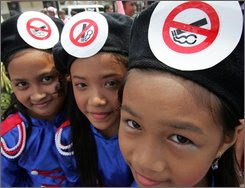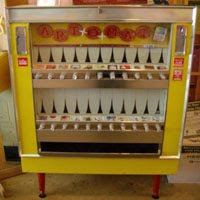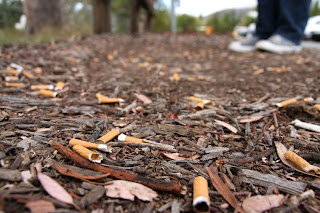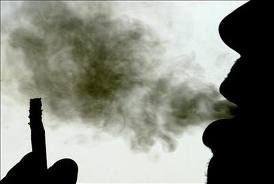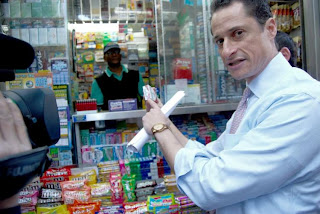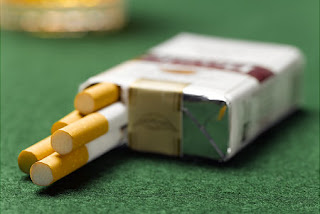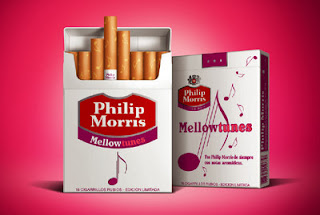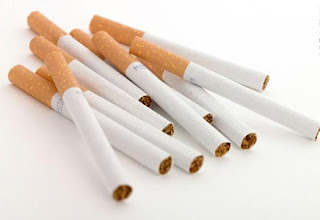
The budget deal that ended Minnesota's government shutdown comes with a hefty price: It relies heavily on borrowing $640 million against money from the state's 1998 tobacco settlement, but might cost that same amount in interest — plus a substantial annual revenue loss for years to come.
Still, it allowed Democratic Gov. Mark Dayton and Republican legislative leaders to avoid $640 million in spending cuts or tax increases.
"From the Republican standpoint it is considered better than a tax increase. I would presume from the governor's standpoint it makes money available to support critical programs," said Tom Hanson, who was the state's finance commissioner under former Gov. Tim Pawlenty. "The downside is it's money that's not going to be available in the next biennium ... but the spending expectations will probably be there."
All 50 states reached settlements with the major tobacco companies in 1998 to recover billions of dollars in costs incurred from treating smoking-related illnesses. Forty-six states signed a master agreement with the industry while Minnesota was one of four states that negotiated separate deals. Minnesota's settlement was expected to bring the state $6.1 billion over 25 years, with payments continuing into perpetuity.
About 20 states have issued bonds backed by future tobacco settlement revenues to meet more immediate needs, according to Arturo Perez, a financial analyst with the National Conference of State Legislatures. Some states have done so more than once. This will be Minnesota's first time, although the idea has been floated at the Capitol before, most recently in 2009 when Pawlenty was unable to get support for a tobacco bond issue.
The budget deal calls for $1.4 billion from tobacco bond proceeds and delayed payments to schools. Minnesota currently gets about $160 million a year from the cigarette makers, so it's expected to receive about $320 million in the two-year budget period that began July 1. The loss of an as-yet unknown portion of that revenue in future budgets means lawmakers may have to find a way to plug that gap.
"They're going to have the same debates two years from now," Hanson predicted. "... Hopefully the economy will grow and the revenue will grow faster than the obligations for the programs."
The special session tax bill Dayton signed Wednesday leaves it up to his finance commissioner to work out most details of how to structure the bond sale, including how long it will take to repay bondholders. The bonds won't be guaranteed by the state.
As a general rule, said Bill Marx, a fiscal analyst for the Minnesota House of Representatives, the final cost to the taxpayers could be 150 percent to 200 percent of the bonds issued. By that math, a $640 million tobacco bond issue could cost nearly $1 billion to close to $1.3 billion.
Marx said the full costs won't be known until the bonds are finally put out for bids, so it's difficult to know yet what the interest rates would be. Tobacco bonds typically get slightly lower ratings from Wall Street analysts than the state gets for general obligation bonds, he said.
A week into the shutdown, Fitch Ratings cited the state's expected reliance on one-time money for closing its budget gap when it downgraded Minnesota's credit rating from AAA to AA+.
Perez said tobacco bond issues ground to a halt in 2008, partly due to failure of investment bank Bear Stearns Cos., which had been a leader in the field. He said it's not clear if a sale by Illinois late last year and the Minnesota plan mark the beginning of a trend.
Illinois sold $1.5 billion worth of tobacco bonds last December, which could give Minnesota a guide. James Prichard, manager of capital markets for the Illinois Office of Management and Budget, said the bonds had an average yield of 5.6 percent. He said Illinois was careful to structure its deal more conservatively than many other states have done, to ensure bondholders can be paid if smoking rates decline faster than expected.
The amount of money the state gets under the settlement is tied to tobacco sales.
Danny McGoldrick, vice president for research at the Campaign for Tobacco-Free Kids, said it's a bad deal for Minnesota. The group has been critical of tobacco bond issues by other states, too. It says raising tobacco taxes would have the added benefit of reducing smoking.
"You're giving up a future revenue stream that can and should be used for what was intended from the settlement, which is to help prevent kids from smoking and encouraging smokers to quit," McGoldrick said.

